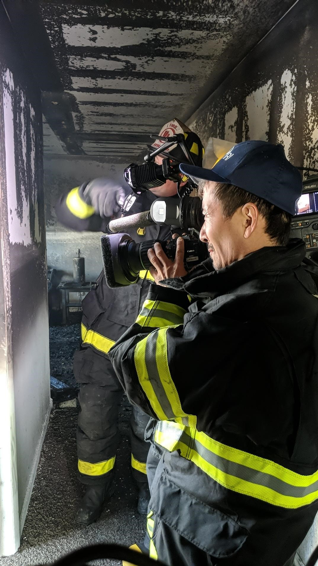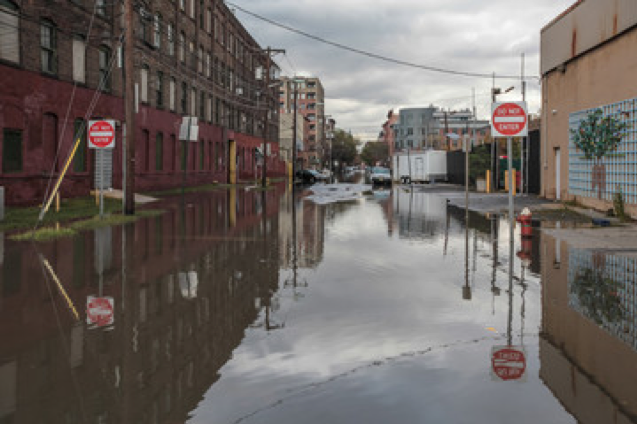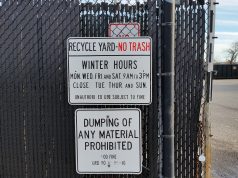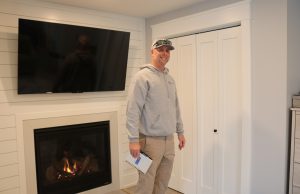News cameramen and their teams have put their health on the line for as long as we can remember to document events such as severe weather developments and hurricanes.
Recently, there has been much discussion about the safety of covering hurricanes, as the potential for being injured can increase depending on the severity of the storm. These conversations have been further emphasized as hurricane season approaches its peak in September.
Russ Marhull- an expert news documentary cameraman for almost three decades- maintains that shooting coverage for hurricanes and storms can be made much safer by taking steps to prevent on-site accidents. Here, he explores a few ways that news camera operators can prepare for the realities of shooting during inclement weather while keeping their teams safe.
Get Physically and Mentally Prepared
Before heading out with your team, you will want to be both physically and mentally prepared for the rigors of working inclement weather.
On the physical side, Russell Marhull recommends preparing by selecting clothing that will keep you properly protected. This includes protection from the elements such as a high-quality raincoat and water-resistant layers. Camera operators and news teams will also want to ensure that their equipment is protected from the elements as well.
For footwear, an option that is hardy enough to protect from injury when stepping over nails, wood, and other debris is a must have for shoots.
Russ maintains that getting proper rest and a good meal before heading out with your team to film in a hurricane is also a good first step for preparedness.
On the mental side of the equation, it is important to keep several things in mind before heading out to film in severe conditions. For example, you will want to properly prepare yourself for what you may see out in the field, especially if the storm is likely to cause destruction in the area.
Experts that have had experience filming hurricanes note that you never know what you may see during your experience. Try to be ready for anything and remain empathic and kind if you are to encounter anyone that needs your help.
Be Aware of Your Surroundings
Reporting can put you in rapidly changing scenarios that require high levels of situational awareness. During hurricanes, there are several ways that situations can quickly become dangerous or life threatening.
High wind speeds, storm surges, and inland flooding can move in very quickly, and news camera operators need to watch their teams’ surroundings in case they need to get moving to safety. Potential hazards to watch out for can include standing or rushing waters, hanging power lines, and airborne debris.
Russ Marhull acknowledges that, even when things appear calm out on the field, teams need to look around and listen to their surrounding environment. With experience will come an understanding of when it is safe to stick around and when moving on may be the safer option.

Working out in the field requires great situational awareness
Keep Essential Gear Accounted For
Out on the field during hurricane reporting, you never know when you and your team will need to pick up shop and flee to safer land. The potential dangers of hurricane and storm reporting necessitates that camera operators and news teams have their essential gear close by and always accounted for.
There are many pieces of equipment that may be a part of an operator’s essential gear list depending on the job. For example, Russell Marhull speaks to how shoes such as boots or waders are a must have for coverage that will take place in heavy rain and flooding.
Camera operators should also keep necessities such as cash and credit cards, their cellphone, extra batteries, a collapsible tripod, and other important items nearby that they may need for filming or personal use. If you do not know when you will have access to food and water, snacks and water can be great additions to your preparedness list as well.
Conduct Risk Assessment on the Job
Many expert news camera operators recommend conducting risk assessments for work in out in the field- especially potentially dangerous assignments such as hurricanes and serious storms. Crew members have a right to say no to a job that they do not feel is safe, although many may not voice these apprehensions.
Russell Marhull recommends risk assessment because it empowers camera operators to find the safest possible way to go about their jobs. This is because considering the risks can help professionals establish a safety plan incase things take a negative turn during shooting.
Knowing your limits as a camera operator is vital for remaining safe during job. If you recognize a situation that may be unsafe that has not been addressed by the team- speak up! Your risk assessment may help keep others safe as well.
Don’t Get Complacent with Personal Safety!
Over time, it can become easy to get complacent with safety precautions after going through the motions of filming for several hurricane seasons. Still, it is important to never forget how important it is to maintain strong adherence to safety protocols.
Crews that work hard to provide comprehensive weather coverage for hurricanes and severe storms may get adrenaline from the experience, but they want to do everything in their power to remain as safe as possible. Pay attention to warning signs and remember your personal safety rules when out on the field as they can save your or a member of your team’s life.
Russ Marhull realizes that there are several ways to ensure that you keep your commitment to personal safety while shooting. Some expert crewmembers recommend safety checklists, check-ins with team members, and paying close attention to alerts and warnings as simple steps for keeping shoots as safe as possible in severe weather conditions.






